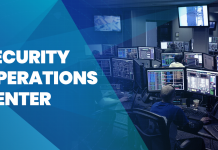Installing paid antivirus software is not enough to protect your business against cybersecurity attacks and threats. As long as your computer is connected to the internet, your business is at risk round the clock 24/7. From small businesses to international multi million-dollar companies, hackers don’t tend to overlook the vulnerabilities in your online security.
Major online businesses have in-house teams of security experts that can eliminate data theft and hacking attempts. For small businesses, cybersecurity investment can be challenging but it’s worth it. See Infrastructure Security Basics & Fundamental Concepts. In the U.S, almost 71% of the victim companies had less than 100 employees. Small business does not always keep the data hidden from hackers due to the cost involved in it. So following some sort of cybersecurity best practices and measures will greatly minimize the risk for your business.
Cybersecurity threats and attacks are part of the online world. If you want to keep your business safe from the chaos, you must implement and follow the following cybersecurity best practices at your workplace.
Cybersecurity Best Practices
Hackers or competitors can use cybersecurity vulnerabilities to breach into your financial files or to access unauthorized data. No matter what is the motive behind a cybersecurity breach, it is always going to hurt your business. These threats can be minimized by following and implementing some special cybersecurity best practices practices for your business.
Implement Dedicated Insider Threat Program
The insider threat program is mostly overlooked by small businesses. If you are operating a business where data security is critical, data theft can sabotage your business reputation. Deploying the insider threat program helps the directors to implement and deploy specific cybersecurity policies and rules for all departments involved.
Conduct Phishing Simulations
Most of the cybersecurity threats are initiated by the employees or top-level management. If admin ends up putting the company credentials in the phishing site, the company is going to fall. You should train your employees and management to distinguish the phishing links and emails. Cybersecurity is equally useful for offline and online businesses.
Remote Working should be Secure
If any employee is working from a remote location, make sure that he knows how to make a secure connection to the company’s network via internet. Using public wireless services to access the official files can expose your business to the hackers. While traveling, make sure that you don’t connect your official device to any public Wifi.
Employees Privacy
If you want to protect your online business, you need to equip your employees with the latest cybersecurity protection tool. The personal data and the information of the employees must be safe and secure so that no one can track them.
Ensure Cybersecurity Awareness
The technologies are evolving so you need to keep your team members familiar with new trends and technologies. You must consider organizing events and educational seminars to educate your employees about cybersecurity threats and practices.
3rd Party Contracts must Follow Cybersecurity Protocols
If you are working with any external teams or contractors, they can cause security threats for your business. Contractors must be aware of your cybersecurity policies so they can follow security measures regarding your business.
Security Governance
If something unusual is noticed by the employees or any other team members, a working model to deal with such incidents must be established. These systems will allow the employees to report and eliminate suspicious activities at the very first stage.
Monitor Employees’ Activity
Insider data breaches are not only hard to track but can be more lethal too. If any employee of your office is involved with the hackers, that can be a disaster. For the minimum risk of the insider attack, the cybersecurity team must track and monitor the file activities by the employees. See what is Security Operations Center (SOC) ?
Stay Safe from State-Sponsored Threats
For departments like healthcare and finance, different states can bribe your employees to gain access to important files. If you notice any unusual behavior in the official activity of any employee, take action as soon as possible before it’s too late. In most cases, bigger industries fall victim to these threats.
Use Password Managers
If your employees are still using “QWERTY” and “ASDFGHJKL” as their passwords, you are on the verge of a cybersecurity attack. Make sure that your employees don’t write down the password physically on any document. You can use password managers to suggest and secure the official passwords.
Monitor Privileged Access
For top-level management, the minimum number of employees should have access to private data that can be critical for the safety of the company. Make sure that no suspicious person has been granted privileged access. Try to review and update permissions regularly.
Essential Network Security Protocols
Insider threats are rare yet very lethal. Your cybersecurity team must implement a strong and secure work frame for the employees so that no individual should be able to bypass the cybersecurity protocols. See Network Basics and Fundamental Concepts
Stop Data Loss
Data handling is the most vulnerable yet essential part of cybersecurity. Data leaks and data breaches can be caused by 3rd party contractors, vendors, clients or even your own employees. No matter who is dealing with data, no weak point should be left unsecured.
Track Insider Threat
If you have a mole in your office, your private data and business files are always on risk. In case of any unusual and suspicious access by any unauthorized person, your cybersecurity team must flag and monitor the insider threat.
Back-up Business Data
Specific Ransomware and infectious files are used to corrupt or delete the business important data. Data corruption can also hurt your business so, you must practice regular data back-up to the cloud as an extra layer of cybersecurity.
Physical Device Threats
Your mobile devices and personal laptops can also be accessed by hackers using social media platforms and entertainment websites. Physical devices must be tagged and properly tracked to ensure the devices are not lost or stolen by hackers.
Clear Office Cybersecurity Policies
Your IT department must be aware of the business nature of your company so they can actively track and eliminate the possible threats to your business.
Upgrade Software and Tools
From operating systems to the work tools, every program must be updated to keep business safe from any kind breach. You must buy original and licensed digital products for your business.
Develop Response Strategy
If your business has been attacked by malicious Ransomware or hackers, you must have a strategy to respond to such attacks and to recover the stolen data. Learn the common data security threats and risks for business.
Say NO to Personal Devices
Try not to allow the use of personal laptops and mobiles for the office work. If it is urgent and critical to use a personal laptop to access the business files, make sure that the employee has secured systems.
Hire Professional Cybersecurity Experts
For small businesses, hiring a complete team of cybersecurity experts can be a costly deal. If you cannot full-time cybersecurity experts, you can try remote services of the cybersecurity teams.




